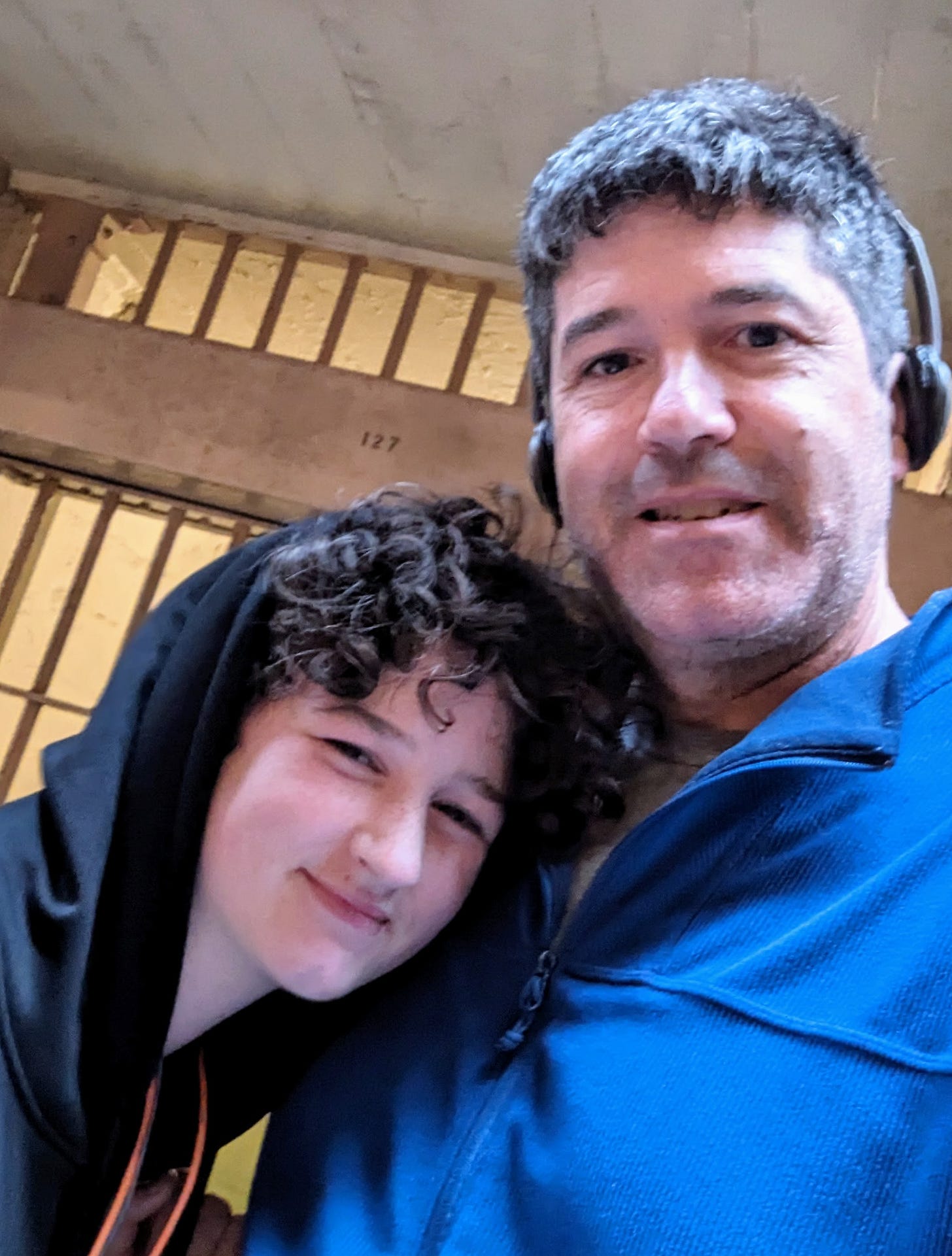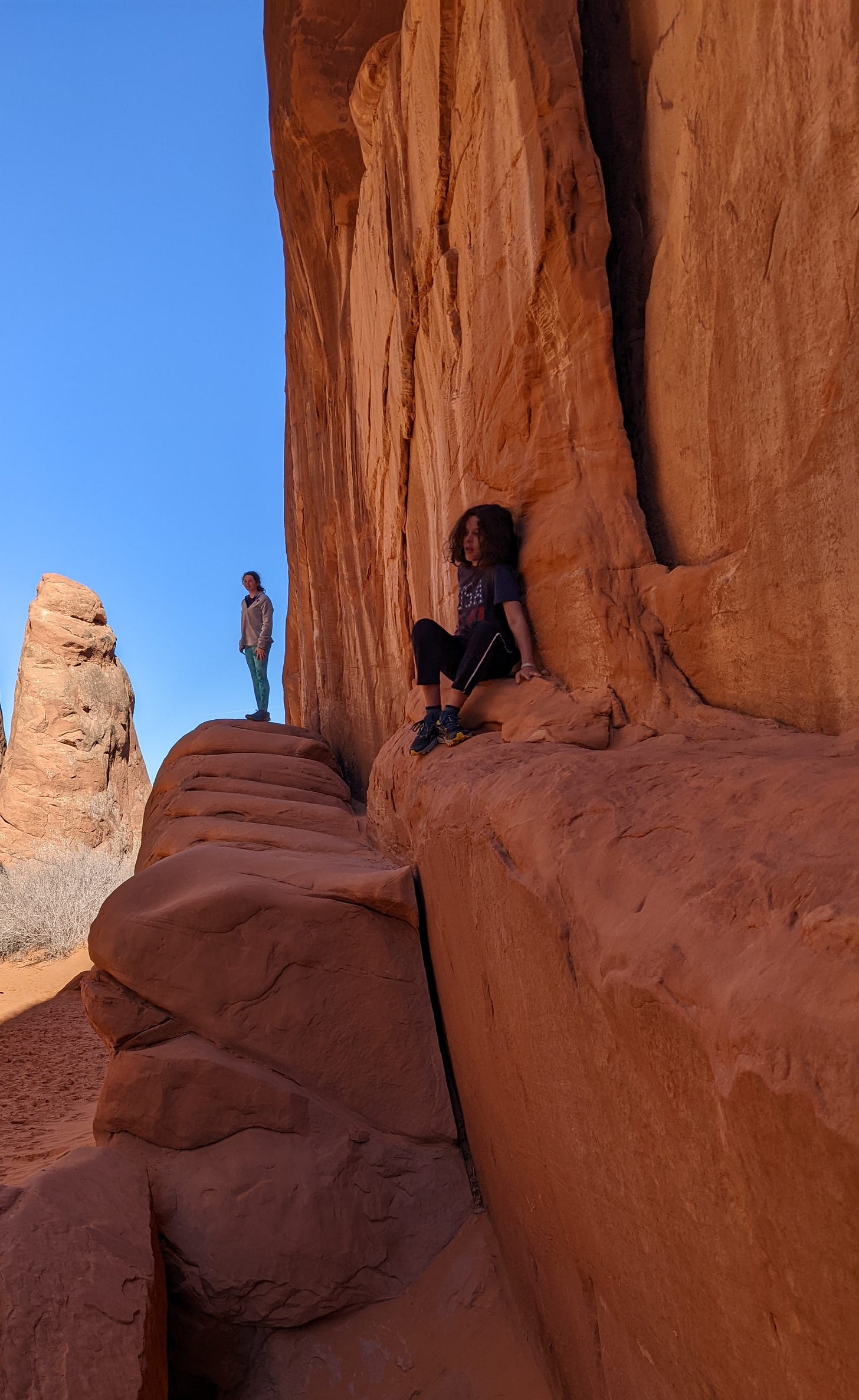127 hours
Self Rescue or Bust
127 hours isn’t a particularly long time for most people. Though as Einstein figured out, time is relative to space and gravity. Time is experienced differently as we move through space or with heavy gravity. What my pea brain understands, is as an object moves through a space grid, time is experienced differently relative to an object standing still. Similarly gravity can bend spacetime and slow down time. If you had two clocks and sent one off in a rocket ship near the speed of light it would have a different time when it arrived back at origin. The two clocks would also have different times if your space ship with one of the clocks was chilling near a gravity well, like a black hole.
I also think we can intuitively understand not all time is experienced the same. Our perception of time also depends on how we move through mind space and the gravity of our situation. 127 Hours is 5.291666 earth revolutions or basically a school or work week. Most work/school weeks move both fast and slow at times. We get bored, or engaged and time slows down or speeds up. In fact, time blindness can be a trait of neurodivergence1.
We also perceive time differently when we are faced with heavy gravity, life situations that force us to confront tragedy, mortality, or other calamity. That said, I think many of us lionize or are drawn to stories where someone has managed to overcome something truly difficult and found a way to persevere and survive. We are all suckers for movies where people have to overcome that which we don’t really want to imagine. Unbroken, Sully, or of course the movie 127 Hours. 127 Hours is a grizzly tale with James Franco playing Aron Ralston, the real life outdoors aficionado, as he embarks on a solo canyoneering trip in Bluejohn Canyon.
Whilst navigating a narrow slot canyon, he is pinned down with a boulder that traps his right arm, leaving him trapped with limited supplies and little hope of outside rescue. He didn’t tell anyone on grid what his plan was or where he was hiking. Having an outsider discover his predicament was a slim chance at best, and slim just left town. Over 127 hours Aron Ralston battles dehydration, exhaustion, hallucinations and despair, recording his thoughts on a camcorder and reflecting on his life and his future dreams. Time was stretched. He must have felt he lived and suffered for an eternity in those 127 hours.
Facing imminent death, he had a vision where he saw his future self rushing to pick up his blond haired son with one arm, his other hand gone. This premonition of a son not yet born, not yet conceived inspired him to keep going through hell. To keep going through hell so that he doesn’t become Ralston Purina chow. To keep going through hell to try and fulfill his vision. He ultimately makes the harrowing decision to break and amputate his own arm with a dull multi-tool to free himself from his rock that was too heavy to move2. Aron Ralston made mistakes that he had to live (or die) with, he didn’t tell anyone where he was planning on going and when he was expected back. There was no 911. His only way out of that slot canyon was self rescue. He climbed out and stumbled through the landscape until he found someone that could get him help. Aron survived, but clearly for him, he was never the same. The pain, transcendence and loss, clearly etched onto his soul. He emerged on a different timeline than the society that he disembarked from 127 hours earlier.
His vision came true. Seven years later, he welcomed a son into this world. Lost an arm, gained a child. Who wouldn’t make that trade? An older version of myself would have just assumed that his vision was a coincidence. Now I am unsure, how many coincidences does it take to believe in more?
Uncivilization
If Aron Ralston were injured with a broken arm closer to civilization, 911 would call in a cavalry of paramedics, an ambulance, and he would be rushed to a comprehensive team of specialists for healing. An emergency team of health professionals ready to triage the situation would be at the ready to stabilize him and draft a comprehensive plan to get him to the required specialists. Unfortunately he was trapped in a slot canyon. The only way out of that slot canyon was through hell and through pain gnawing at hope relentlessly. And hope of a rescue, quickly morphs to despair with every atomic tick of the clock.
What if I told you right now, there are so many kids and adults that are stuck in a situation every bit as deadly as Aron Ralston’s. Proverbially, pinned between a large rock and a slot canyon. Mental illness can entomb someone in a slot canyon of the mind, and similarly to Aron, the only chance for rescue is through pain and hell and to proverbially crawl to seek “help.” But in that way it is worse. Mental illness isn’t treated as an emergency, there isn’t a triage team to stabilize and support. There is no comprehensive team of medical specialists looking at mind, body and environment. The tools to treat mental illness are as rudimentary as the multitool that Aron had to use to unentomb himself. This slot canyon of the mind is ethereal. It can’t be seen, or measured, as easily as broken bones and lacerations. Those struggling often get turned away, deemed not a real emergency, put on exhaustive waiting lists, and never comprehensively assessed. They often get “treatments” that may, in fact, be harmful to them. Mental illness doesn’t respect time. Mental illness isn’t polite to take a break after 5pm and on weekends.
Compare the steps required for a sick person told to call 988 to what happens when someone calls 911 in a physical accident. The mental trauma victim often must make their own doctors appointments, navigate sensory and communication challenges, self advocate through gas lighting, and relentlessly absorb additional medical trauma. They need to keep doing their job, keep going to school. Navigate the cold indifference of The SYSTEM which has lost all ability to empathize. The SYSTEM will perhaps “see you,” if you have the right insurance and the stamina and executive functioning to fill out 17 different questionnaires. The SYSTEM basically asks, just like for Aron Ralston, to get help first you must drink your own urine and saw off your arm. To “self-rescue” requires the ability to navigate a byzantine maze of phone trees, insurance fights, referrals to nowhere and superficial advice. The gravity of mental illness is immense, and time stretches around the blackhole in The SYSTEM until it runs out.
How do we make things better? How do we better help those at risk and in crisis? I think it will take all of us to fix these systems, to demand better, to demand more. To demand more from medicine, law and education. As an example, what can schools do? What should they be doing? What can we do to advocate for our kids and the kids of others? How do we advocate for The SYSTEM to find children at risk that need support. How do we get The SYSTEM, to help children understand that there are brain differences that make us all part of the human continuum. Do we fight, fawn or flight? I struggle with this question a lot. In future posts, I will beg, plead and cajole for change in The SYSTEM because that is the kind thing to do.
In neurodivergent individuals, time blindness is often linked to differences in executive function, which is the brain’s ability to plan, organize, and regulate behavior. Research suggests that ADHD brains, for instance, may have an impaired "internal clock" due to variations in dopamine regulation, making it harder to sense time passing without external cues. Hyperfocus (intense concentration on a task) or distractibility can amplify this, pulling attention away from time awareness entirely.
Sometimes life gives us literary metaphors that we can no longer ignore.




